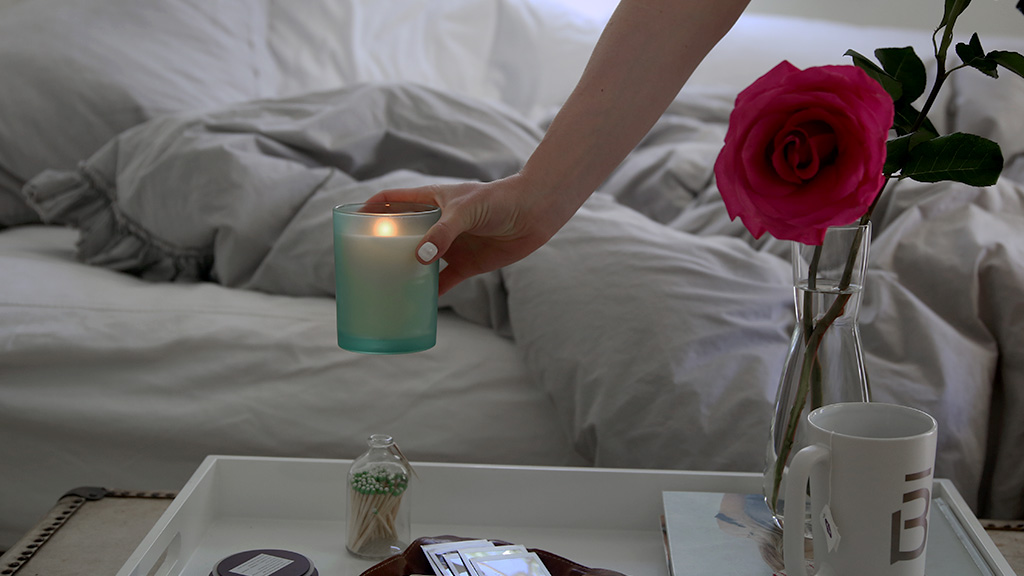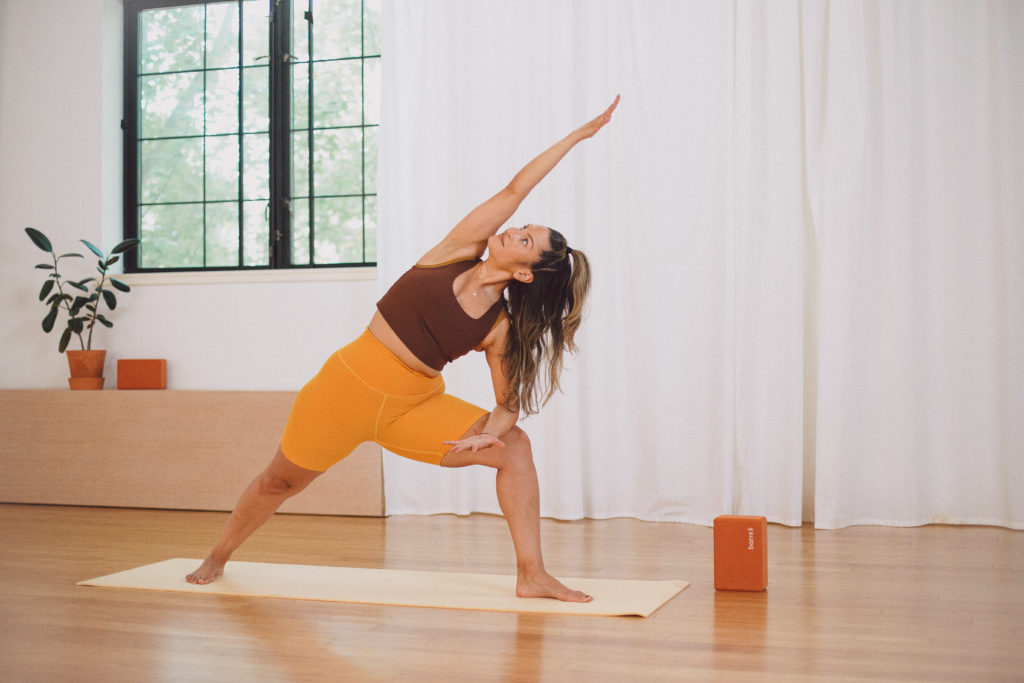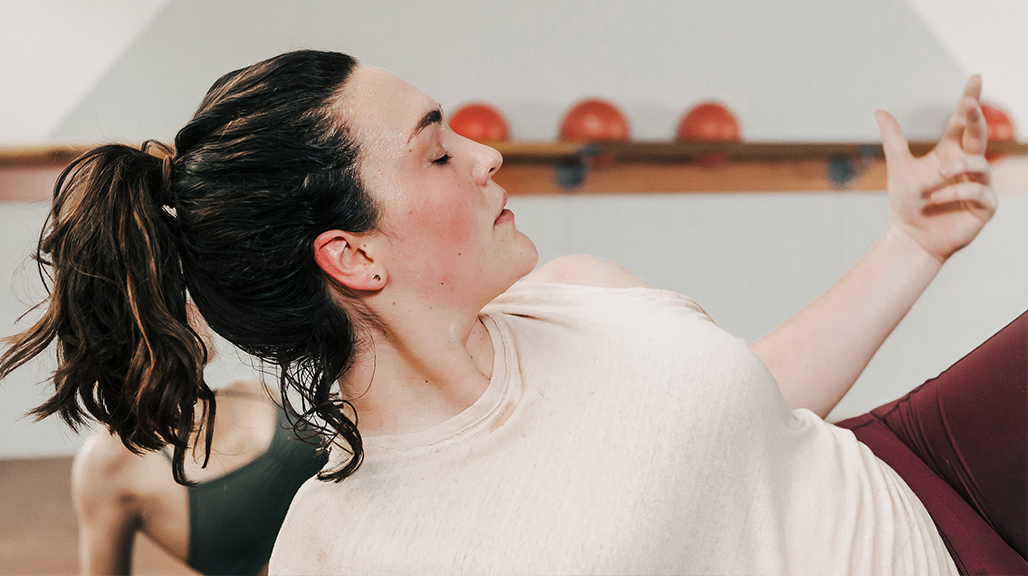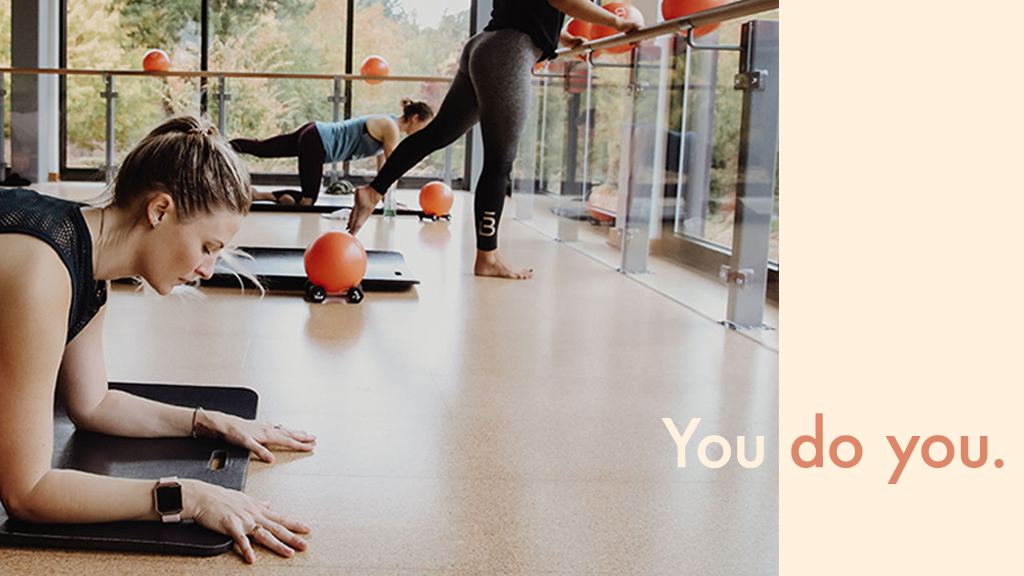Nourish
Do This Tonight For Restful, Restorative Sleep
We’ve shared a 5-minute morning routine that has the power to change the trajectory of your entire day. But what about when the day is done?
Unfortunately for many of us, the closest thing we have to a nighttime routine is lying in bed with phone in hand, scrolling through social media until we can’t keep our eyes open anymore. In search of a better option, we reached out again to Dr. Amy Shah. Just like her morning routine, her nighttime version is quick, simple, and a total game-changer. Here’s what she recommends:
Before You Do Anything: Set Yourself Up For 8 Hours Of Sleep.
Why: “This is essential for a hormone, gut, and mind reset,” says Dr. Shah. “In fact, in my practice when people have digestive issues like bloating, constipation, or Irritable Bowel Syndrome (IBS), I prescribe sleep.”
How: Ideally, you’ll go to sleep and wake up around the same time every night—even on weekends. Treat your bedtime as you would a child’s: No matter what fun and games they’re engrossed in, they have to go to bed at a certain hour. Same goes for you. Even when you’re tempted to read just one more chapter or watch one more episode, stay true to your designated bedtime.
1 Minute: Get Some Face Time
Why: Massaging your face helps reduce your blood pressure, pulse, and respiratory rate, all of which works to induce sleep. “Some studies encourage doing this for 20 minutes a night, but I’ve had success with a more streamlined, shorter approach,” says Dr. Shah.
How: After washing your face with warm water and the natural cleanser of your choice, move your fingertips in small circular motions all around your face. Pat your face dry and apply a moisturizer, massaging it into your face with the same circular motions.
1 Minute: Nix The Screens
Why: This one is simple: Light promotes wakefulness. As the National Sleep Foundation explains, “photoreceptors in the retina sense light and dark, signaling our brain about the status of the outside world and aligning our circadian rhythms to the external day-night cycle.” In other words, light tells our brain it’s time to be awake, while darkness sends the message that it’s time to sleep. Studies show that mobile phones, in particular, can cause insomnia.
How: Turn off your TV, your iPad, and, ideally, your phone. If you’d rather not turn off your phone completely, at the very least turn it to “nighttime” or blue-light mode, turn off notifications, and switch the sound off. Dim your lights to give your body the signal that it is no longer daytime.
1 Minute: Practice Mindful Breathing
Why: Essentially a form of meditation, mindful breathing brings your focus inward, calms your nervous system, and helps you enter a state of deep physical relaxation.
How: Inhale deeply through your nose for a count of four, making sure your belly—not your chest—expands as you breathe in. Hold the breath for a count of six. Exhale through your mouth for a count of eight. Repeat for a minute.
1 Minute: Set The Scene
Why: The ideal sleep conditions are cool, dark, and quiet. “In fact, the studies supporting this are so strong that some ICUs are administering ear plugs and eye masks to patients to see if they sleep better, which will in turn help them recover more quickly,” says Dr. Shah.
How: Program your thermostat to drop to around 65 degrees during sleeping hours. Turn off all lights (including nightlights), close your curtains, and consider wearing an eye mask and earplugs to completely block out light and sound.
Getting a good night’s rest is one of the most important things you can do for your health. Another way to feel your best? Engaging in regular, mindful movement. Get started with a 15-day free trial of barre3 online workouts today!
We’ve shared a 5-minute morning routine that has the power to change the trajectory of your entire day. But what about when the day is done?
Unfortunately for many of us, the closest thing we have to a nighttime routine is lying in bed with phone in hand, scrolling through social media until we can’t keep our eyes open anymore. In search of a better option, we reached out again to Dr. Amy Shah. Just like her morning routine, her nighttime version is quick, simple, and a total game-changer. Here’s what she recommends:
Before You Do Anything: Set Yourself Up For 8 Hours Of Sleep.
Why: “This is essential for a hormone, gut, and mind reset,” says Dr. Shah. “In fact, in my practice when people have digestive issues like bloating, constipation, or Irritable Bowel Syndrome (IBS), I prescribe sleep.”
How: Ideally, you’ll go to sleep and wake up around the same time every night—even on weekends. Treat your bedtime as you would a child’s: No matter what fun and games they’re engrossed in, they have to go to bed at a certain hour. Same goes for you. Even when you’re tempted to read just one more chapter or watch one more episode, stay true to your designated bedtime.
1 Minute: Get Some Face Time
Why: Massaging your face helps reduce your blood pressure, pulse, and respiratory rate, all of which works to induce sleep. “Some studies encourage doing this for 20 minutes a night, but I’ve had success with a more streamlined, shorter approach,” says Dr. Shah.
How: After washing your face with warm water and the natural cleanser of your choice, move your fingertips in small circular motions all around your face. Pat your face dry and apply a moisturizer, massaging it into your face with the same circular motions.
1 Minute: Nix The Screens
Why: This one is simple: Light promotes wakefulness. As the National Sleep Foundation explains, “photoreceptors in the retina sense light and dark, signaling our brain about the status of the outside world and aligning our circadian rhythms to the external day-night cycle.” In other words, light tells our brain it’s time to be awake, while darkness sends the message that it’s time to sleep. Studies show that mobile phones, in particular, can cause insomnia.
How: Turn off your TV, your iPad, and, ideally, your phone. If you’d rather not turn off your phone completely, at the very least turn it to “nighttime” or blue-light mode, turn off notifications, and switch the sound off. Dim your lights to give your body the signal that it is no longer daytime.
1 Minute: Practice Mindful Breathing
Why: Essentially a form of meditation, mindful breathing brings your focus inward, calms your nervous system, and helps you enter a state of deep physical relaxation.
How: Inhale deeply through your nose for a count of four, making sure your belly—not your chest—expands as you breathe in. Hold the breath for a count of six. Exhale through your mouth for a count of eight. Repeat for a minute.
1 Minute: Set The Scene
Why: The ideal sleep conditions are cool, dark, and quiet. “In fact, the studies supporting this are so strong that some ICUs are administering ear plugs and eye masks to patients to see if they sleep better, which will in turn help them recover more quickly,” says Dr. Shah.
How: Program your thermostat to drop to around 65 degrees during sleeping hours. Turn off all lights (including nightlights), close your curtains, and consider wearing an eye mask and earplugs to completely block out light and sound.
Getting a good night’s rest is one of the most important things you can do for your health. Another way to feel your best? Engaging in regular, mindful movement. Get started with a 15-day free trial of barre3 online workouts today!










2 people have left a comment. Join the conversation!
View Comments